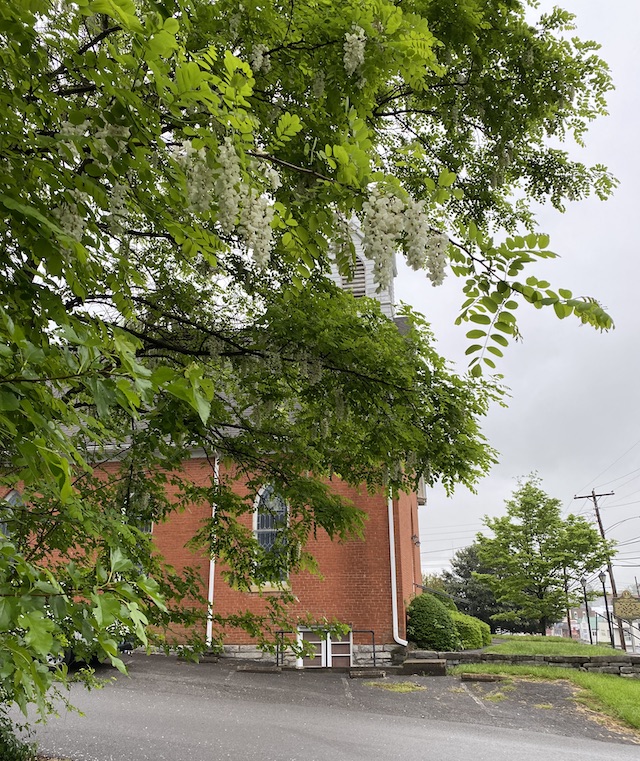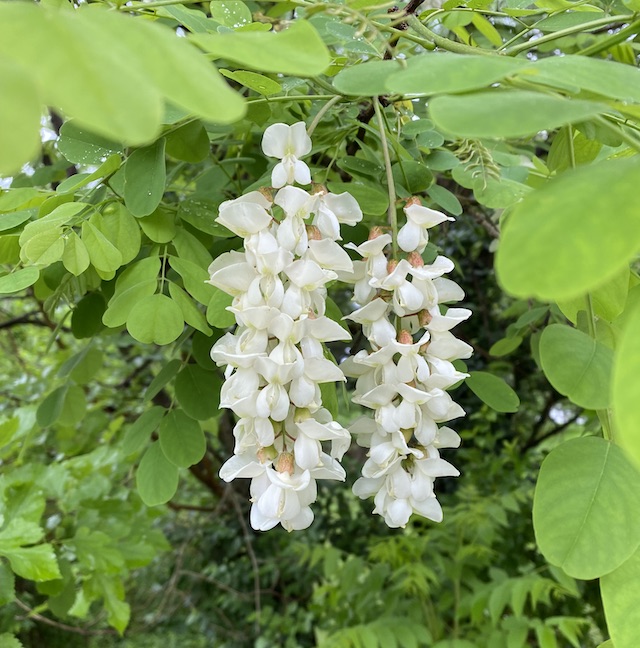| ||||||||||
Dr. Ronald P. Rogers CHIROPRACTOR Support for your body's natural healing capabilities 270-384-5554 Click here for details 


Columbia Gas Dept. GAS LEAK or GAS SMELL Contact Numbers 24 hrs/ 365 days 270-384-2006 or 9-1-1 Call before you dig Visit ColumbiaMagazine's Directory of Churches Addresses, times, phone numbers and more for churches in Adair County Find Great Stuff in ColumbiaMagazine's Classified Ads Antiques, Help Wanted, Autos, Real Estate, Legal Notices, More... 
|
Kentucky Color: Locust Winter By Billy Joe Fudge The Great Wooded South is located here in the Northern Temperate Zone of the Southeastern United States. Our Spring weather as might be expected, vacillates back and forth between warm, early Summer-like temperatures and cool, late Winter-like temperatures. During most years these cool spells are perfectly correlated with the mass flowering of three native pioneer species of hardwood trees; Redbud first, Dogwood second and thirdly, Black Locust. This year has been no exception. Redbud and Dogwood blooms were timed perfectly with the first two major Spring, cool snaps and this Derby Day weekend's cool, Winter-like weather is right in the middle of the Great Wooded South's Black locust bloom. The beauty, fragrance and importance of the Black locust bloom are all three under appreciated. The beauty in my opinion is unmatched outside the tropics, the fragrance at its zenith will melt the hardest heart and the nectar produces a very desirable, fruity and fragrant honey. This story was posted on 2022-05-07 15:39:46
Printable: this page is now automatically formatted for printing.
Have comments or corrections for this story? Use our contact form and let us know.
More articles from topic Kentucky Color by Billy Joe Fudge:
Kentucky Color: An Inspiration Video: Windflower Kentucky Color: Yes, War is Hell Kentucky Color: The Monkey Trap Kentucky Color: Dissimilar Cones Kentucky Color: 10 reasons to save the American Chestnut Kentucky Color: American Chestnut Dinosaur Kentucky Color: Health Threat Kentucky Color: Spring is Near Kentucky Color: Bone Chilling View even more articles in topic Kentucky Color by Billy Joe Fudge |



|
||||||||
|
| ||||||||||
|
Quick Links to Popular Features
Looking for a story or picture? Try our Photo Archive or our Stories Archive for all the information that's appeared on ColumbiaMagazine.com. | ||||||||||
|
Contact us: Columbia Magazine and columbiamagazine.com are published by Linda Waggener and Pen Waggener, PO Box 906, Columbia, KY 42728. Please use our contact page, or send questions about technical issues with this site to webmaster@columbiamagazine.com. All logos and trademarks used on this site are property of their respective owners. All comments remain the property and responsibility of their posters, all articles and photos remain the property of their creators, and all the rest is copyright 1995-Present by Columbia Magazine. Privacy policy: use of this site requires no sharing of information. Voluntarily shared information may be published and made available to the public on this site and/or stored electronically. Anonymous submissions will be subject to additional verification. Cookies are not required to use our site. However, if you have cookies enabled in your web browser, some of our advertisers may use cookies for interest-based advertising across multiple domains. For more information about third-party advertising, visit the NAI web privacy site.
| ||||||||||


















































